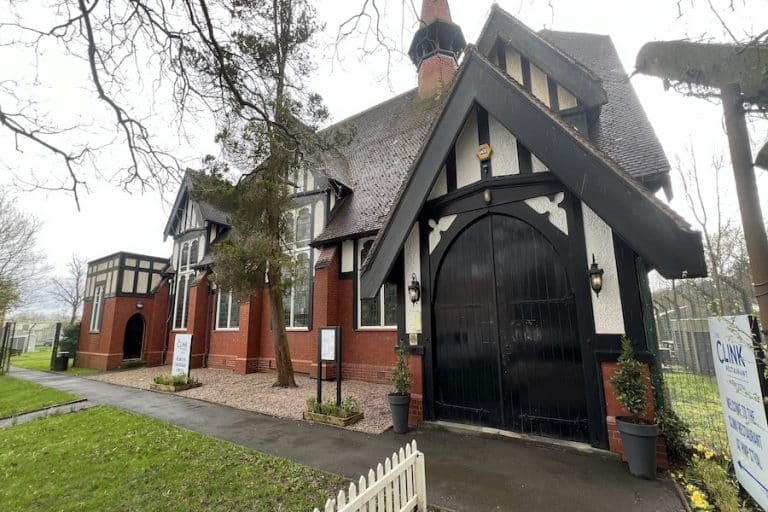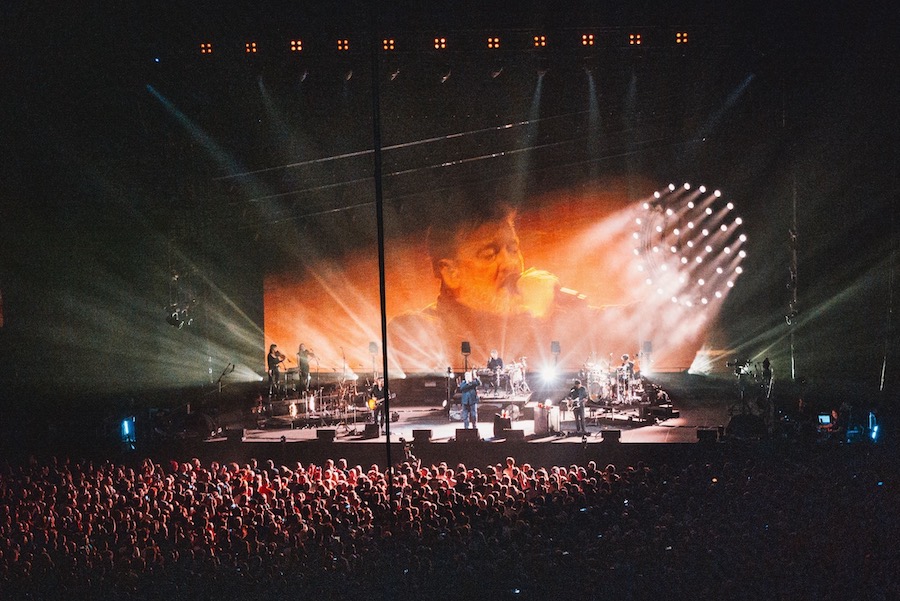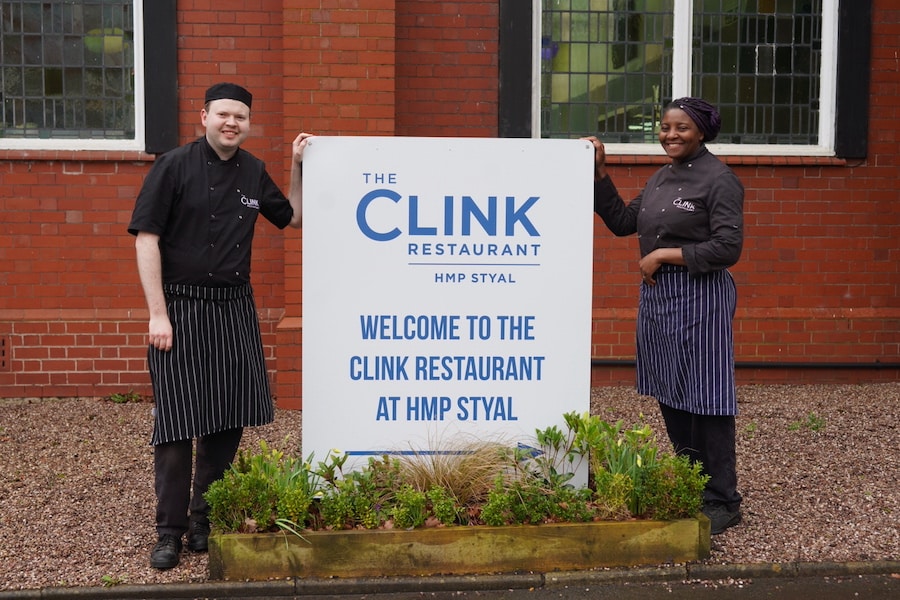Wigan Casino at 50: stories from the people who made it happen
- Written by Thom Bamford
- Last updated 1 year ago
- Bolton, Cornerstone, Culture, Featured, History, Music
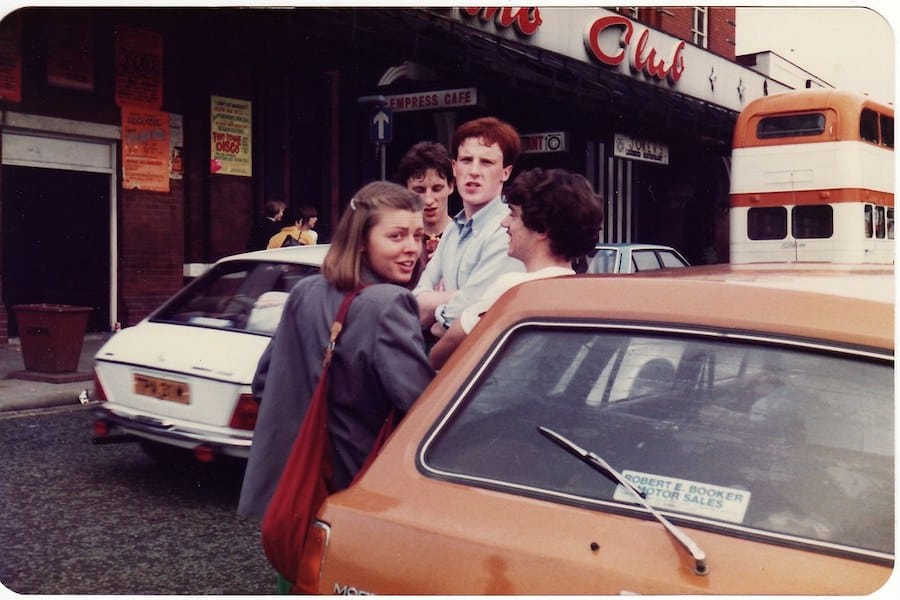
Wigan Casino is approaching the 50th anniversary of its opening this year.
It was on Sunday 23rd September 1973, keen punters paid up a whopping 75p each to dance to rare black American records from 2 am until 8 am.
And the rest, as they say, is history.
To celebrate, we thought we’d get in on the act too, speaking to regulars who made the club the phenomenon it was.
The Birth of Wigan Casino and the Northern Soul Movement
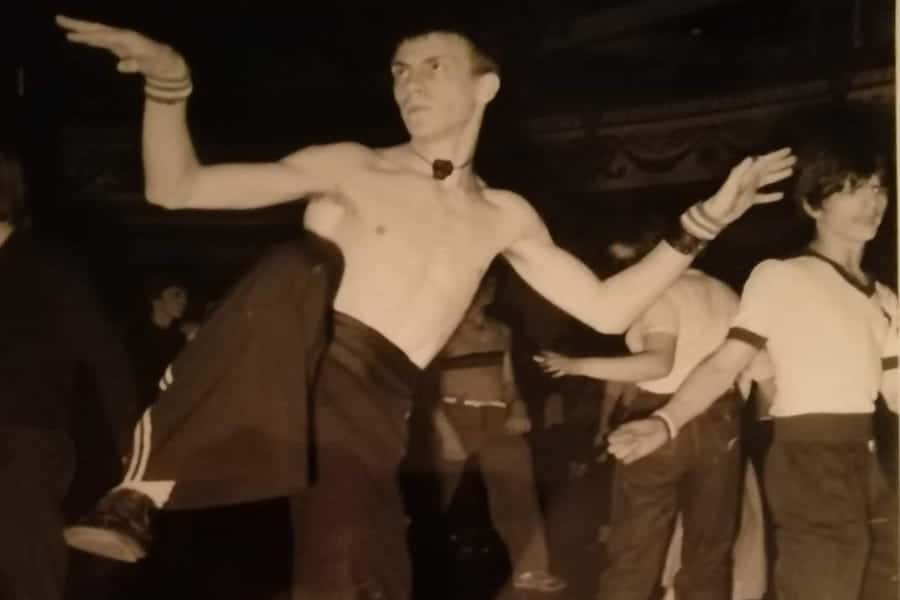
In the heart of Wigan, a revolution was born 50 years ago that would resonate through generations – the opening of Wigan Casino.
This legendary venue became the epicentre of the Northern Soul movement, a subculture that fused rare American soul music with energetic dance and a solid sense of community.
The Rise of Wigan Casino: From Ballroom to Soul Haven
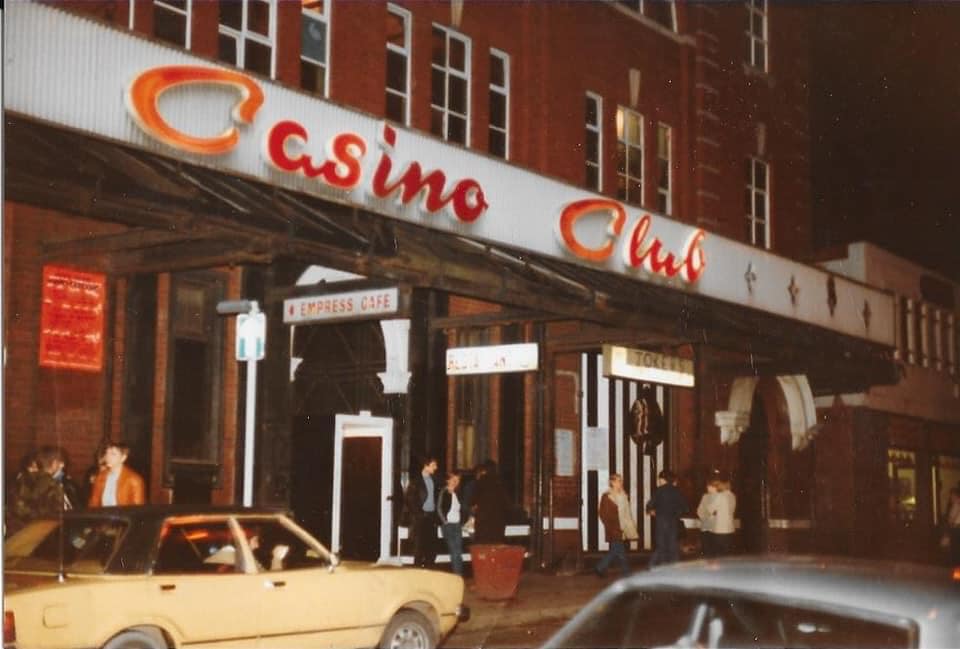
Wigan Casino, originally a ballroom established in 1932, underwent a transformative journey in the late 1960s when it changed to playing Northern Soul records.
The Casino’s iconic all-nighters, featuring marathon dancing sessions fueled by soulful tunes, quickly gained a cult following.
We spoke to the regulars who made the place legendary.
Donna Woodcock, a regular at the Casino, said: “The first time I went I was 13 years old and on my own.
“I just used to sit on the balcony and watch in awe all the hundreds of people below dancing.
“Would tell my mum the next morning I had been to early morning mass.
“Did it week after week before I picked up the courage to join the throng of people dancing.
“For me, there was no need for alcohol or drugs as the music was the drug!
“This went on for weeks until I turned up home as usual after “early morning mass” to find police cars outside our house.
“My mum was going away and went to give me a goodbye kiss at 3 a.m. but no daughter.
“My mother was hysterical why hadn’t I asked her…because you’d have said no.
“Of course, I was grounded for months, but the very next weekend back I was after shimming down the drainpipe to catch the last bus there.
“But walked it home from Wigan to Clayton le Woods on my own at 4 am to make sure I was home in bed for 8 am.
“Boy oh boy was I knackered, but well worth being part of something I’ll carry in my memories forever!”
The Soulful Soundtrack: Rare Records and DJ Pioneers
Central to Wigan Casino’s allure was its remarkable soundtrack.
The DJs scoured record stores and import bins for obscure, high-energy tracks that would become the heartbeat of the all-night dance sessions.
The rare records spun at Wigan Casino transformed lesser-known artists into stars within this niche subculture.
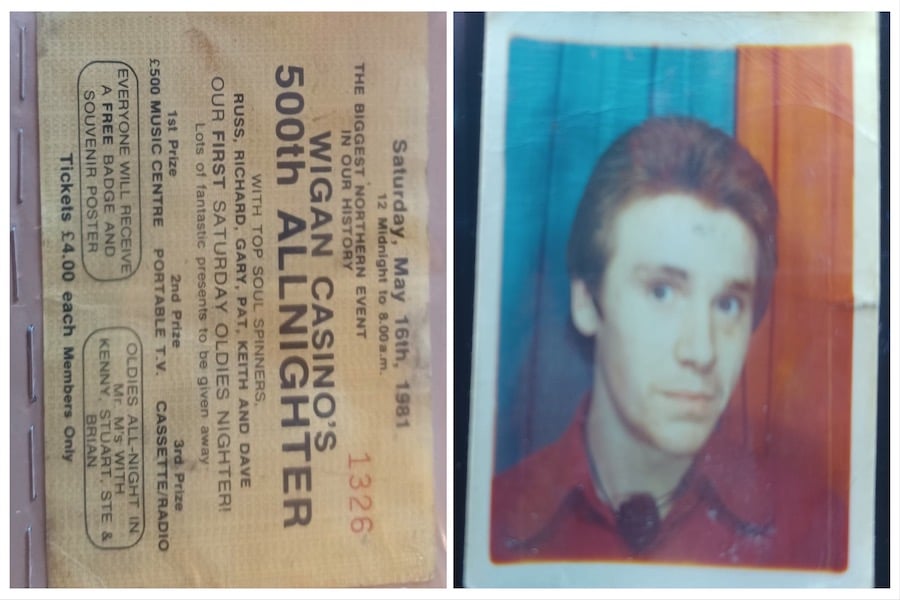
We spoke to Sandy Holt, who went to every single Casino all-nighter night from its inception in 1973 to its final dance.
He won the coveted UK Northern Soul Championship not once, but twice, with his incredible dancing moves wowing judges.
Sandy said: “From their first anniversary in 1974 to their closing night – I went to every casino all-nighter throughout the years it was open.
“I remember watching the first dance competition at the Casino for the UK, it might have even been the world and just learning over the balcony thinking: that’s what I want to do, that’s what I want to win.
“I was into soul dancing at the time, and disco, and was just getting into martial arts too.
“I looked over the balcony and thought I need to do this!
“Third anniversary I won it, and went in again on the fourth to defend my title but I lost in the semis unfortunately!
“I wanted revenge though, and I got back in on the fifth and won the fifth-anniversary title!
“I also did the choreography for the play, staged at the Octagon in Bolton called Once Upon a Time in Wigan.
“It was absolutely awesome to be part of it. I also was on the Big Breakfast with Russ Winstanley dancing back in the day, and Look Northwest showed people some Northern Soul dancing.
“It’s such a great part of my life, such fantastic memories.”
“The music made it so special. It united people from all over the UK and even, the world.
“It was a well-known underground scene, and the music even though it was from Detroit, soul music, labelled Northern Soul and it just became incredibly powerful music that made everyone dance.
“People went into the record bars, with super rare music.
“A lot of the tracks were from B-side soul music that never made it to the charts. It was full of soul, people who have fallen in love, and breakups.
“It was about humanity, people’s lives and how they interact and how they get on. A lot of it had to do with relationships.
“Relationships were formed there, joined by this phenomenal music with great lyrics, and fantastic beats too.”
1973 – The Turning Point and Wigan’s Global Impact
The year 1973 marked a turning point in Wigan Casino’s history.
The venue’s “100 Club All-Nighter” event garnered national attention, sparking a surge of interest in Northern Soul.
This event catalysed the Casino’s reputation as a global hub for the movement, drawing visitors from all corners of the world.
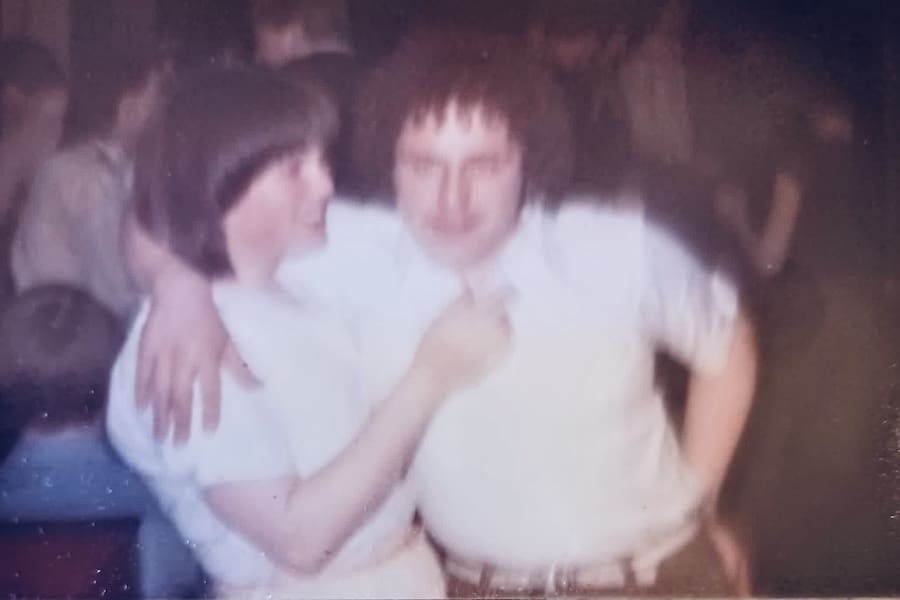
Graham Boardman was a regular at the Casino and shared his memories of the place with us.
He said: “I was 14 when I first went to the Casino. It’s safe to say my mum wasn’t very happy but once I had been once, I was hooked.
“Everyone was so friendly, there were always great underground records, or stompers as we called them, it was a wonderful community.
“In all the years I went, I never saw any fights.
“Inside the casino, it’s hard to put into words.
“The place was packed, and it had a musty smell with walls covered in sweat.
“It was incredibly crowded, and I doubt it would meet today’s safety regulations. It really took over your life.
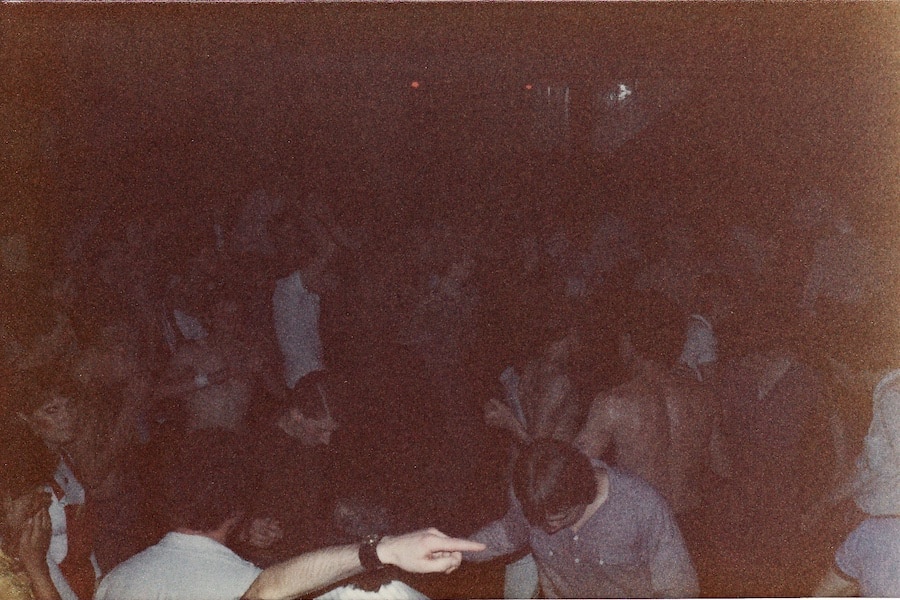
“I even got a job just to afford to go to the all-nighters. It was really life-changing.
“The dancing style evolved over time. It started in Manchester during the Pendulum days. People would watch others dance and pick up moves.
“We had quite the schedule. Friday all-nighters, Saturday all-nighters, Sunday all-dayers, and even bank holidays with all-day events. We weren’t drinking; it was all about the music. We’d have sandwiches and milk for breaks, and then we’d change for the second half of the night. It was intense, but we loved every moment.
“I hope I’m wrong, but I don’t think a scene like it will ever happen again.”
The Cultural Phenomenon and Enduring Legacy
Wigan Casino wasn’t merely a nightclub; it was a cultural phenomenon that inspired fashion trends, dance styles, and a profound sense of belonging.
The Casino provided an escape from the trials of everyday life, where individuals could lose themselves in the rhythm and soul of the music.
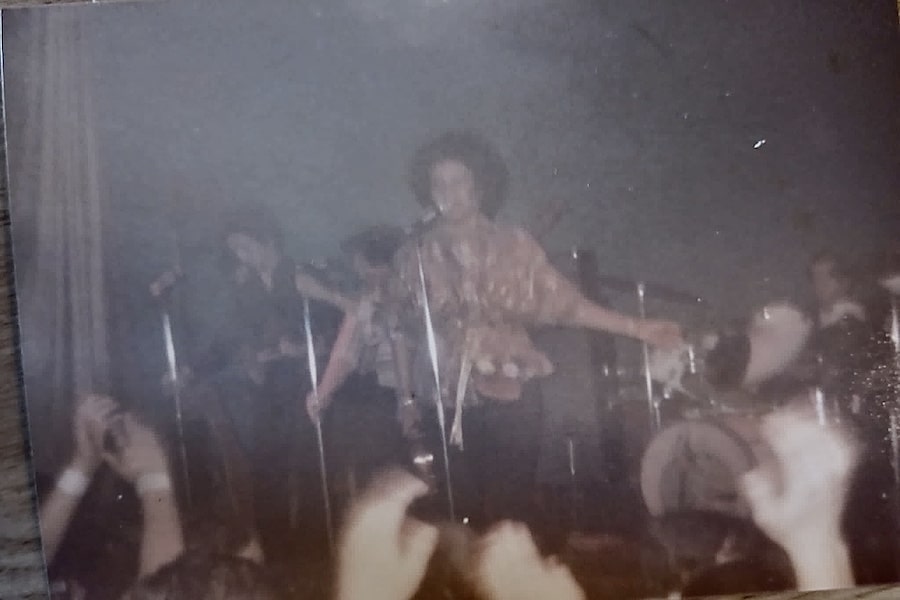
Even as musical trends shifted over the years, Wigan Casino’s legacy endured.
Diana Jakeway, who was a regular at the Casino told us of her memories of the place.
She said: “I first went to the Casino in 1974,
“From the moment I walked into the place (carried up the stairs by the crush) and met the formidable Mrs Woods, who took the tickets and hoped she wouldn’t ask your age (I was only 15) I felt I’d found my place in the World.
“I suppose today you’d say you’d found your tribe.
“We were from all over the country, living different lives etc., but the music brought us together.
The dancing, everyone was your friend, it was like stepping into another World.
“We were part of something very special but didn’t realise it at the time.
“I wish I could have bottled the atmosphere.”
Diana said one of her highlights of the Casino was getting up on stage and singing soul classic WAR with Edwin Starr.
Along with a few other ladies at the casino, she sang the backing vocals.
Tragically, all good things must come to an end. Wigan Casino’s doors closed for the last time on December 6, 1981.
The final night, filled with emotion and bittersweet memories, marked the end of an era.
Yet, the spirit of Wigan Casino persisted, as Northern Soul enthusiasts continued to gather and celebrate its legacy through reunions and events.
The 50th Anniversary Celebrations and Beyond
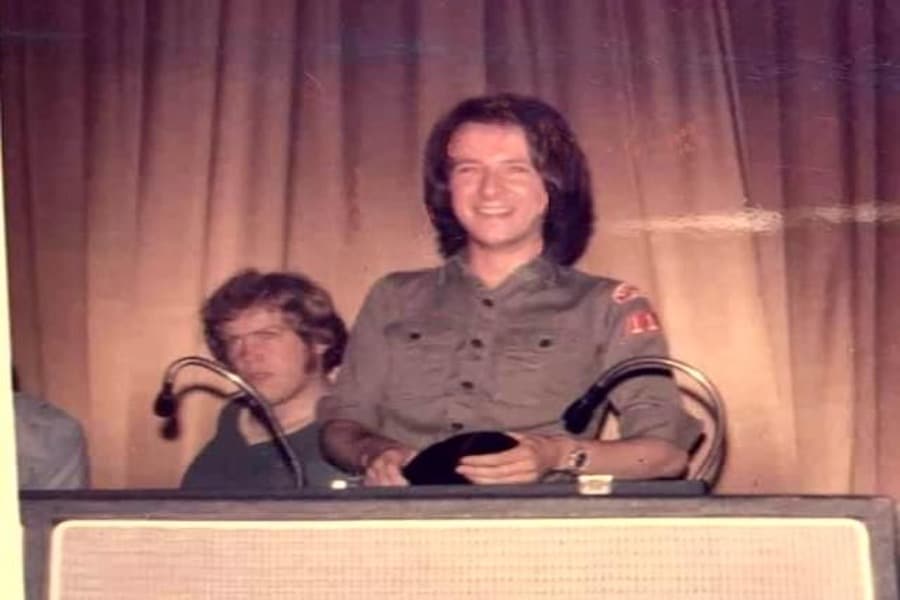
Now, as we celebrate the 50th anniversary of Wigan Casino, its impact on music, dance, and culture remains undeniable.
The spirit of those all-nighters lives on, echoing in the beats of modern music and the dance moves of contemporary generations.
The Casino’s enduring influence serves as a testament to the power of music and community to transcend time.
In commemorating this milestone, let us pay tribute to Wigan Casino, its founders, DJs, dancers, and every soul whose heart was touched by its melodies.
As we reflect on its history, we are reminded that while buildings may fade, the soulful essence of Wigan Casino lives forever in the hearts of those who experienced its magic.
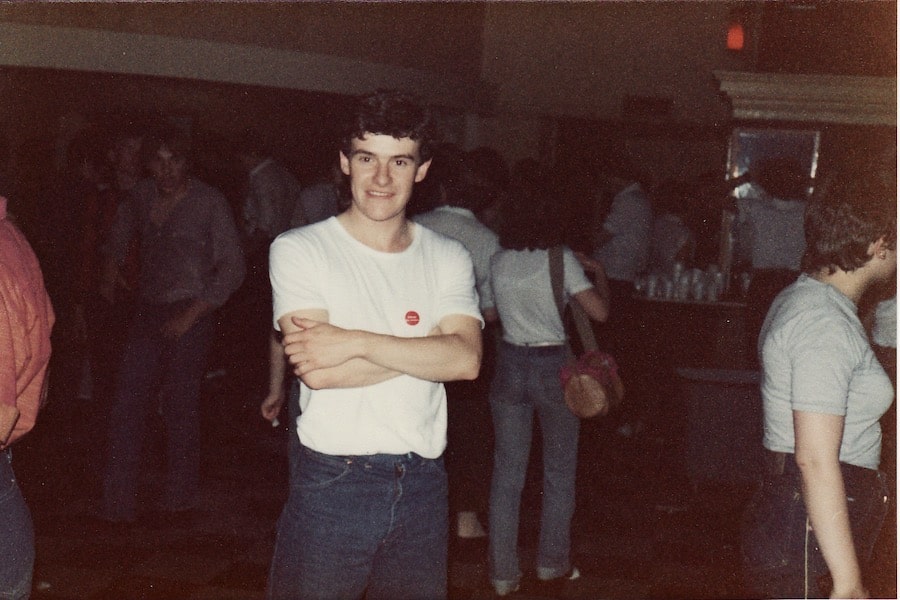
Sean O’Sullivan, who went to the Casino regularly shared a long reflection on the place.
He said: “The toilets seem to figure in many recollections of times spent at the Casino. Notoriously grim, flooded floors from dodgy plumbing, drug deals, and endless people changing their sweaty clothes for a fresh feel for an hour or two, with towels and new tops from their holdall along with the ubiquitous Brut aroma.
“For me, the challenge in using the toilets during the all-nighter was to keep the leather soles of my shoes as dry as possible. Damp soles meant you couldn’t really glide, and even the pervasive use of talc to improve the slip wasn’t going to resolve the issue.
“So, what to do? I’m not sure what anybody else did, but I developed a style of going to the toilet while balancing on the outside edge of my leather-soled shoes. Some people managed to be amazing dancers with sports shoes and similar, but for me, I needed the boost that leather gave, and as long as the soles were dry and smooth, I could give it a go.
“The dancing style itself is fascinating. It evolved in an era of no social media, hardly any mainstream media coverage until the infamous ‘This England’ documentary, and during a period when even digital cameras didn’t exist, let alone smartphones. You learnt by being there. But that was just the start.
“You’d watch, you’d have a go, and then you’d head home and plan. What you needed was the music, and if at all possible (mostly not), a bit of floor space.
“There was room if you arrived early enough on some all-nighters to go to their pre-nighter sessions. I only recall going to one of these, at the time when Gerri Grainger (‘I go to pieces’) and Tony Middleton (‘Paris Blues’) were being played.
“These two tunes blew me away. Dancing up near the stage, loads of room, wonderful music. Most times at the all-nighters I found a spot towards the front, on the left hand side as you looked at the stage. There were a couple of guys who used to dance there who were quite incredible with spins in their dancing. One of them was definitely featured in the ‘This England’ documentary, but I’m not sure about the other guy.
“Now and again during the evening I’d just shift towards an area that seemed a bit less crowded, but mostly I just found a space and more or less stayed there.
“Whether you’d come with friends or on your own, it didn’t really matter when it came to dancing. Dancers hit the floor individually for the most part, so you’d pick your spot, and you could catch up
with friends when you wanted a break.
“There was no Spotify, no CDs, just vinyl and cassette tapes. If you knew what you were doing (I didn’t then, and still don’t really), you’d head to the record bar on the balcony of the Casino and nab yourself a great find, maybe a real bargain. Punters like myself would buy the odd single from someone selling 45s from their record box in a heady atmosphere of sweat, warmth, and a slight note of Johnson’s Baby Talcum Powder.
“If you were lucky you had a well-informed friend to guide you. For me they were Eddie Hubbard and Ian Boss. But the occasional purchase of one 7” record was never going to school you. The flood of interest in soul music over here at that time resulted in importers beginning to offload the less valuable vinyl they obtained via soul packs.
“The less reputable ones would just be bundling up multiple bootlegs, but the best ones normally came from the leading record dealer, Soul Bowl. Some singles that were of no interest back in the heyday of Wigan Casino and so got put into these soul packs of 100 assorted soul imports, costing around £25. As tastes have developed over the past 50 years a wide range of these sounds have become real floor fillers and worth £100’s.
“The truth was, that to hear the rare, obscure and newest tracks, you simply had to travel to the actual venues. Big name DJs had great cachet, and with venues like Wigan operating every week, the pressure was on to keep new sounds coming.
“So, for less frequent visitors like me, the tool was cassette tapes. When you went to Wigan, you could tape some of the event on a C90, C120 perhaps.
“That sounds easy, especially now with audio apps on smartphones. But back then it meant lugging a chunky tape recorder, with enough batteries to last, and trying to find somewhere to put it to get a decent recording of the music being played.
“Oh, and of course, to keep an eye on it to ensure nobody nicked it! Not something you’d do on every trip. And then, having to keep an eye on it all night while making time to dance.
“Having gone to such trouble, it was hugely frustrating for me, working in London in the early 80s and living in Deptford, when we were burgled and our state of the art music centre (!) was stolen, with my C90 tape of an evening at Wigan in the deck at the time. I was unable to convince the insurance company of the priceless value of the tape, which to me was worth way more than the music centre itself.
“The other way of hearing the big tracks, was bootlegs. Many, like myself, didn’t really know enough to recognise that a record might not be the real deal, but when your interest was in dancing, and needing to play it and get familiar with it, just having one that you could put on your record player was invaluable.
“In time, tape swapping filled this gap, and expanded your knowledge too, but back then bootlegs did play a role.
“And you’d practice. Whether it be a bootleg on your record player, or maybe a track on a tape, you’d put it on and you’d have a go at dancing to it. On your own. Just shuffling, trying to remember and feel the moment the the entire crowd at Wigan would simultaneously clap to emphasise key timings in the song. Working out the moment that you might have a go at a modest spin, or even commit to a backdrop.
“You’d yearn for a space with a wooden floor, as trying out your moves on a carpet really didn’t do it, but I suspect, for most, if not all of us, practice at home was all you had.
“Clapping was a major part of the addictive atmosphere at Wigan. Once you knew when to time your clap(s) you felt as though you’d taken another step to being part of the scene, rather than an observer wondering what it was all about.
“Much the same with when you might try a spin (I was never much good at this), or a kick or backdrop. This was another key part of the atmosphere, knowing that at certain points in specific records there would be an eruption of bodies twirling and
leaping upwards to then drop to the floor, all in various combinations but all timed to perfection.
“With the dance floor normally being rammed you had to be very aware of the dancers all around you, making sure to not whack them with a misjudged move, and giving space for their moves too.
“The other side of clapping that isn’t mentioned so often, was to simply show appreciation of the choice a DJ had made to play a specific record. DJs rarely talked over records, including playing them through to the run-out before possibly giving you the artist and title of the one they’d just played or were just about to play.
“This gave space for us punters to give a ripple of more gentle claps to just say “Yeah, great tune that”.
“Cameras at soul nights and all-nighters were very much a rarity at the time. It’s been a great revelation to see lots of archive photos coming into the light related to this 50th anniversary of the opening of Wigan Casino. But for most of us, just as with cassette tape recorders, you’d think twice about whether you wanted to take it along and then keep an eye on it all night.
“I’m pretty sure the only time I took a camera was this one featured here, and it was more about being there with my girlfriend than it was to do with wanting photos of being at the Casino.
“At that time, I had little idea that I wouldn’t have crystal clear memories of every moment!
“I got into the Northern scene during the months leading up to the infamous ‘Footsee’ by Wigan’s Chosen Few. Banbury, in 1975, was a modest market town, and there was a strong legacy of people who travelled to clubs like the Twisted Wheel in Manchester, and the Torch in Stoke-on-Trent who then moved onto Wigan Casino and Blackpool Mecca.
“These soul fans brought music back to our own hallowed venue, the Winter Gardens.
“As a small town, the Winter Gardens was central to how things developed, and the resident DJ, Bob Boot, was open-minded to the records people were bringing back from their travels. Northern
“Soul music got an airing, dancers did their bit, and some of us got hooked. It wasn’t without its hassles, and now and again other people who were less taken with the music and dancing might flick cigarette butts or other debris into the area, but a camaraderie developed and there’s still a big group of people here in Banbury who came together in the 70’s.”
Edward Hubbard’s Memories of the Casino
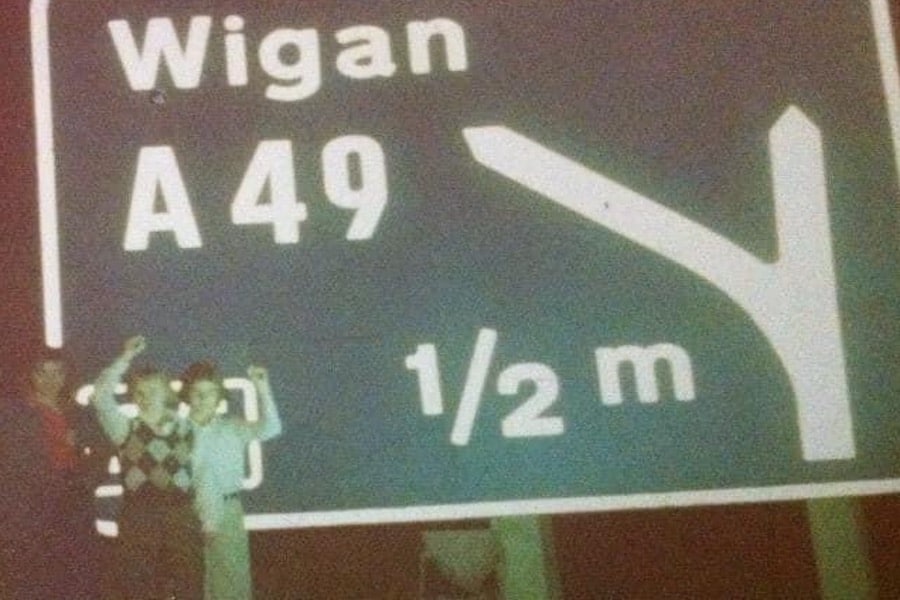
“I loved going to Wigan Casino, from January ‘75 to the official last night in September ‘81 – each occasion seemed to be an experience.
“From leaving home on Saturday evening and catching the train or mini bus, or if we were lucky a car, it was never boring.
“Meeting people like Mitch, Julie, John Corless, and Jimmy at Birmingham station, and maybe Gloucester girls like Lesley and Adele.
“Pete Smith often joined the train at Wolverhampton and many more once we reached Crewe. I remember the Crewe train was always boiling for some reason.
“Sometimes we had odd pieces of trouble off football supporters returning home to the North after away games, but nothing too serious. Often people had tape players on the train, so we played pre-recorded tapes, or live Wigan tapes from previous weeks, the only way we could hear the top sounds in those days.
“Reaching Wigan station we often got chased by local pubgoers, it just seemed to add to the excitement, to be honest.
“Turning into Station Road and seeing the queue, especially on anniversaries or live act nights such as Edwin Starr or Jnr Walker was always a sight to behold, people everywhere, looking through 50 count record boxes of sales, Rod Shard, Dave McCadden, Louie from Runcorn and many more.
“Coppers pulling us out of the queue to do drug searches, deals being done up dark alleys and the smell of Brut.
“At last getting in, up a few steps, handing our money to Mrs Woods, ripping our ticket in half and up another flight of stairs through the double doors, where the blanket of heat and noise hit you.
“Then you had a decision to make, up more stairs to the cloakroom and hand your coat and hold-all in ( I recall all the rows of coats were dominated by full-length leather coats especially ) Or you could stay on the dance floor level and go into an already filling up record bar, I recall the sweet smell of freshly cut acetates of the latest top sounds, Keith Minshull, Butch and Tim Ashbende selling records along with many more, like Dave Withers, Dave Raistrick etc.
“Everyone kept an eye out for sellers who hadn’t been out for years, often bargains could be found special memories of the early years are hearing Eddie Spencer “If This Is Love“ as I stood in the archway that led from the coke/record bar, Ernie Andrews “Fine Young Girl” as I walked up the steps to pay, and The Drifters “ You Got To Pay Your Dues “as I walked through the double doors into the darkened dance floor ….this is Wigan Casino.”
A Soulful Journey Through Time
Wigan Casino’s remarkable journey from a ballroom to a global epicentre of soul music is a testament to the enduring power of music, community, and cultural expression.
As we celebrate its 50th anniversary, we honour the legacy of Wigan Casino and the Northern Soul movement, forever etched in history as a beacon of unity, passion, and rhythm.
Documentary not enough for you?
You can get involved with a Wigan All-nighter in Blackpool at Winter Gardens on September 22 by clicking here.
Were you a regular at Wigan Casino? Why not share your stories and photos?
Email thom@Ilovemanchester.com with your memories and photos!
- This article was last updated 1 year ago.
- It was first published on 6 September 2023 and is subject to be updated from time to time. Please refresh or return to see the latest version.
Did we miss something? Let us know: press@ilovemanchester.com
Want to be the first to receive all the latest news stories, what’s on and events from the heart of Manchester? Sign up here.
Manchester is a successful city, but many people suffer. I Love Manchester helps raise awareness and funds to help improve the lives and prospects of people across Greater Manchester – and we can’t do it without your help. So please support us with what you can so we can continue to spread the love. Thank you in advance!
An email you’ll love. Subscribe to our newsletter to get the latest news stories delivered direct to your inbox.
Got a story worth sharing?
What’s the story? We are all ears when it comes to positive news and inspiring stories. You can send story ideas to press@ilovemanchester.com
While we can’t guarantee to publish everything, we will always consider any enquiry or idea that promotes:
- Independent new openings
- Human interest
- Not-for-profit organisations
- Community Interest Companies (CiCs) and projects
- Charities and charitable initiatives
- Affordability and offers saving people over 20%
For anything else, don’t hesitate to get in touch with us about advertorials (from £350+VAT) and advertising opportunities: advertise@ilovemanchester.com
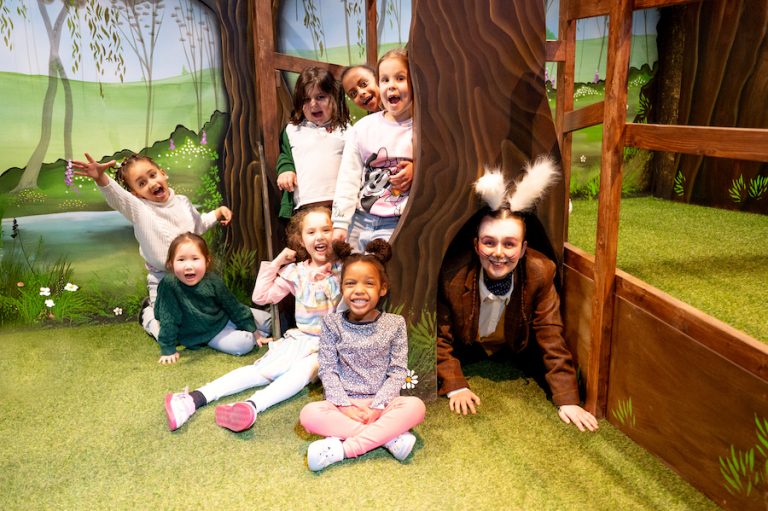
Head down the rabbit hole for Adventures in Wonderland with Z-arts
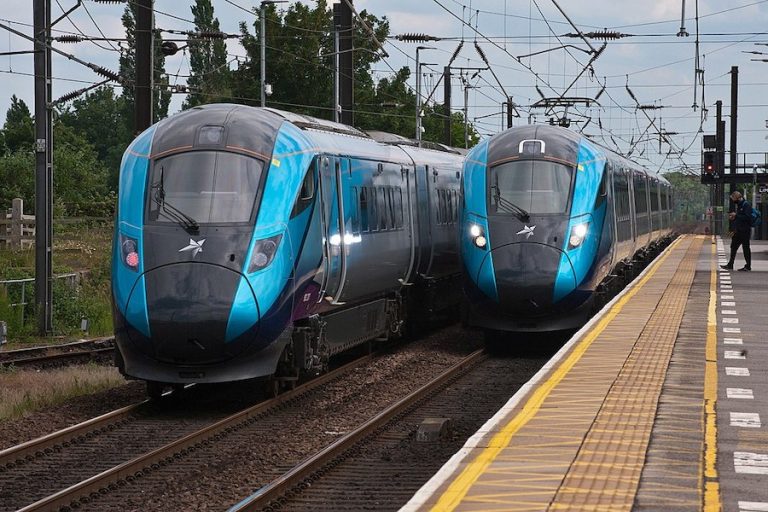
Major rail investment set to transform Manchester-Leeds commutes

“His presence will be deeply missed” Children’s hospice bids farewell to their visionary CEO

Has Gordon Ramsay created Manchester’s ultimate bottomless brunch?

The Clink celebrates ten years of empowerment and second chances
